
Arquivo para December, 2024
Four books to read in 2025
Happy 2025 to everyone who reads me and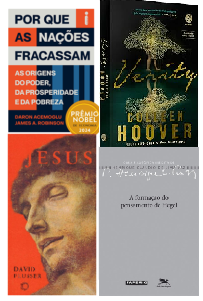 follows my social, spiritual and intellectual concerns. In my opinion, we need to read and re-read the Other, the contradictory, what we ignore.
follows my social, spiritual and intellectual concerns. In my opinion, we need to read and re-read the Other, the contradictory, what we ignore.
It’s good to make a resolution for the year ahead. I consider reading to be important, and now more than ever due to a certain cultural and spiritual cooling of this habit.
Every year I set myself the goal of reading four books, but I end up reading more or partially reading one of the proposed ones if I find the book falls short of what I expected, but this is rare.
In 2025, three books caught my eye. The first, which I still find few references to, is the book “Liberty”, a novel about a couple in love and an intruder, three sick minds, but the author Collen Hoover has also been making a name for herself on social media and in a TV series, that has boosted sales of her book.
The second book is by two Nobel laureates in 2024, “Why Nations Fail” is written by Daron Acemoglu and James A. Robinson, who together with Simon Johnson won the Nobel Prize in Economics in 2024. The synopsis of the book says that they defend the original thesis that the likelihood of countries developing good institutions is when they have an open political system, with disputed charges, a broad electorate and space for new leaders to emerge, and this seems to explain the current scenario of political and economic decay.
David Flusser’s book caught my attention from the moment I read the first blurb, the book, a comprehensive overview of first century Palestine when Jesus lived, the religious ideas that circulated, the political struggles and social antagonisms of the period, shows a Jesus who was consistent with the Old Testament (the Torah) and identified with his people.
The author was a professor of Hebrew culture at the University of Israel and was a moderate Jew who received the Israel Prize from the Israel Academy of Sciences and Humanities in 1980.
I read the first volume of Henrique Cláudio de Lima Vaz’s Obra Filosófica, which was the result of research carried out during the 1988-1989 biennium and sent to the CNPq (Brazilian Foundation for Research) when he was a research fellow. His project was: “The Hegelian construction: a paradigm of systemic rationality”, in which he clearly explains Hegelian thought, and the second volume is more structured in terms of the core of Hegelian thought.
This volume, according to the synopsis, goes from the formation of Hegel’s thought to the Phenomenology of Spirit, and as Henrique Cláudio was a Jesuit priest (he is now deceased) I am interested in the extent to which contemporary religious thought is influenced by Hegelian idealism.
Happy 2025 to everyone, make a purpose, be resilient (happiness isn’t easy) and show solidarity with those who need you.
The real chances of peace in 2025
A 2024 assessment of the war is disastrous: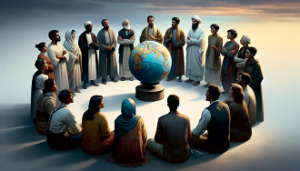 the conflict that has broken out in Gaza, with Israeli forces invading that territory and carrying out actions that are reprehensible for their acts of cruelty and difficulties in accessing international aid organizations, the increase in the conflict in Eastern Europe, now also with aggressions on Russian territory and China’s threats against Taiwan paint a very sad and worrying picture.
the conflict that has broken out in Gaza, with Israeli forces invading that territory and carrying out actions that are reprehensible for their acts of cruelty and difficulties in accessing international aid organizations, the increase in the conflict in Eastern Europe, now also with aggressions on Russian territory and China’s threats against Taiwan paint a very sad and worrying picture.
The American government-elect that takes office in January, Donald Trump, has promised to put an immediate end to the war. The problem is that the 4 provinces dominated by Russia by force: Donetsk, Luhansk, Zaporizhzhia and Kherson, are not in question, although Russia says that “some border adjustments” are possible, and demands that Ukraine be left out of NATO.
Russia would thus gain 18% of Ukraine’s territory, but fears that a “ceasefire” agreement is just a way for Ukraine to take a breather and rearm; if the current escalation continues, greater involvement by European nations could make the conflict off-limits to negotiations.
The other worrying pole is the escalation of the war in the Middle East. Israel is not backing down from its pretensions to eliminate its enemies in the region, but it is doing so outside humanitarian limits and what is considered abominable, even though the war is already a humanitarian disaster, the bombing of schools, hospitals, the last one that was functioning precariously also seems to be out of operation in Gaza, goes beyond the limit and to the point of being an abomination, Even if we know that war is already a humanitarian disaster, the bombing of schools and hospitals, the last of which, which was functioning precariously, also seems to be out of operation in Gaza, goes beyond the limit and makes those responsible guilty of a war crime, of course, the terrorism atack in october 7th in Israel its crime too.
There are reasons to consider peace, yes, because it creates global tension, weakens the economy and affects the most vulnerable peoples, bringing more misery and hunger. Strictly speaking, it shouldn’t interest anyone, but there is a tragic reasoning behind wars, which is to know “if my enemy has lost more”, since everyone loses, and the most fragile are the first to be hit.
The world is polarized, even those who should be the most ardent defenders of peace have given themselves over to the bipolar game of hating the enemy, without the possibility of dialogue or understanding a different point of view, everyone says “this is unreasonable”.
So we frantically search social media for those judgments and hatreds that favor us, without realizing that we have become influenced by this bipolarity and this hostile climate between peoples, political positions and a rational dialogue about their positions and ideas.
There is always hope for a renewal of the civilizing process, but at the moment it seems stuck and regressing to absurd levels of education, health, culture, politics and even spirituality, which has become a business and without any exercise in analyzing the heritage on which most religions were built: solidarity, helping the vulnerable, greater social balance and environments of truly spiritual values and virtues.
What wasn’t said about Jesus’ birth
It’s not part of the biblical narrative, but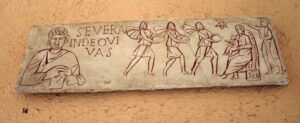 apart from the Roman census, Herod’s persecution (historical data) when he placed Jesus in a manger wrapped in cloths and the coming of the “magi”, it can be clarified in the light of stories from the time.
apart from the Roman census, Herod’s persecution (historical data) when he placed Jesus in a manger wrapped in cloths and the coming of the “magi”, it can be clarified in the light of stories from the time.
It was Jewish custom to separate a newborn lamb for the Jewish Passover sacrifice, recalling the sacrifice that Abram would make with his son and that an angel interceded by offering a lamb, the fact that Jesus was wrapped in swaddling clothes also recalls a Jewish custom of the time to separate the lamb, wrap it in swaddling clothes and place it in a manger, with special care.
So this is already a preparation for Easter, since he was born and made small to be like earthly man, even though he was a God, an Emmanuel, the divine among us.
But remembering yesterday’s astronomical events, we also want to remember the “magi”, who may have been kings and not magi, because they had gifts of prophecy and were informed about a star “And when they saw the star, they rejoiced with great and intense joy” (Mt 2:10-11) and so they followed it and found the child in Bethlehem as the Jews had expected.
The star that announces a cosmic event that predicts the arrival of the “king of the universe” and not just the “god of the Jews” could be the passing of a comet, an event that was already known at the time, although it was mistaken for a “shooting star“, if It had to choose (see the previous post), I’d choose the nova, which is the birth of a star. In short, the famous “guiding star” could be one of these phenomena.
The image of the Adoration of the Magi, in a stone painting dating from the 3rd century AD (photo) shows only a star, without the typical cometary tail, so it could be any of the celestial phenomena that cause great brilliance.
It’s worth remembering that the kings who came to worship Jesus weren’t Jewish, and yet they had a sign and followed their vision (it wasn’t magic, of course) and worshipped him.
An event that didn’t happen in 2025
Scientists predicted the formation of a star from a white dwarf and a red giant, T Coronae Borealis (T CrB), around September, when these two would meet in a huge explosion that would be seen even with the naked eye, but it hasn’t happened yet.
from a white dwarf and a red giant, T Coronae Borealis (T CrB), around September, when these two would meet in a huge explosion that would be seen even with the naked eye, but it hasn’t happened yet.
They would form a nova, which unlike a supernova, which is a star “dying” – the terms are imprecise astronomically and are only didactic – a nova is the birth of a star, so the phenomenon of life and death in the universe is very common and wonderful.
The formation of a nova occurs from the approach of a White Dwarf, which is a body with a very dense mass comparable to the Sun and a small volume comparable to Earth, as there is no fusion inside the White Dwarf its luminosity is weak, while the Red Giant has a low or intermediate luminosity, in which there is a process of fusion of hydrogen into helium.
The approach of the two forms a new star and this “explosion” is what was predicted for this year, so for now, T Coronae Borealis, is a binary star (a white dwarf and a red giant) whose fusion will form a star with this name, because it is located near the constellation of Coronae Borealis.
A Supernova, on the other hand, occurs when a “giant sun” with a mass greater than 10 times our Sun, explodes and reaches the end of its life and also produces a very intense glow, forming either a neutron star or a black hole, the best known of which is Betelgeuse (or Alpha Orionis because it is in the constellation of Orion) saw a drop in brightness in October, which could be an indication that its explosion is near, but no date has been set.
T Coronae Borelis is about 75 light years from our Sun, which is relatively close in terms of astronomical location; Alpha Centauri, our neighboring galaxy, is 4,367 light years away.
It’s the cycle of life in the universe too, and explosions and flares in Novas and Supernovae not only give an intense glow, but also indicate a new reality for celestial bodies.
Christmas is still a universal celebration
Although of the 195 countries in the world, there are 150 that officially celebrate it, in many of these where it is not official, like Uruguay for example, there are families and religious services that remember the date.
there are 150 that officially celebrate it, in many of these where it is not official, like Uruguay for example, there are families and religious services that remember the date.
It is true that we are in a difficult time with threats of world wars, social and political crises clearly spread across the globe and many innocent people facing deprivation of freedom and justice, increasingly political and ideological, but as we pointed out in the previous post, it is still Christmas for those who desire and live true and eternal peace.
Those who still position themselves in climates of hatred and exclusion are not without evidence of this lack of peace within themselves, of people who have distanced themselves or been distanced by the force of some disaffection, but even among the excluded, those who don’t hold sorrows and grudges are at peace and can enjoy moments of peace and festivities, not festivities of abundance but of the joy and rest that peace brings us.
It is this feeling that I wish everyone I meet and live with during the year, and to those who don’t understand us we must still wish for peace, the peace that every human being needs.
There is no shortage of Herods who want innocent people to die, no shortage of Pharisees and zealots willing to do anything for a biased and unspiritual worldview, no shortage of those who think of Christmas as consumption and abundance, but there is also no shortage of true Christians who celebrate the birth of their Savior, even though he was deprived of an inn, found shelter in a humble manger and was worshipped there by shepherds and kings from the east.
So it’s always surprising that God is present among those who need a little joy, among humble people who are happy to have enough to live on and celebrate.
I hope that this spirit of a truly simple and humble Christmas brings peace to everyone, and I especially wish those who suffer the horrors of war a moment of happiness and peace.
MERRY CHRISTMAS !!!
Christmas and peace
In the midst of wars and hatreds, it is possible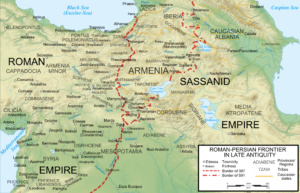 to find peace ? and what peace we are talking about.
to find peace ? and what peace we are talking about.
The roman´s pax was the rule of the Roman Empire over nations and territories, Kant’s eternal peace, although it has something to commend it when it talks about peace for all, in reality the idea was born out of the peace between the Byzantine Empire and the Sassanid Empire (see map), a treaty of indefinite duration, which concluded the Iberian War (527-531) between two imperial powers.
There was also a religious peace, called the Peace of Westphalia, where the agreement between Catholics and Lutherans took place, as there were kingdoms declaring war over religion.
The peace of Christmas, even if it is paganized, is that which the birth of Jesus promised to bring among men, of which he said: “Peace I leave with you, my peace I give to you. I do not give it as the world gives it. Let not your heart be troubled, neither let it be afraid” (Jn 14:27).
Yes, we are promoters of wars in our midst, between family members, between work colleagues, we don’t accept opinions and worldviews that differ from our own, we may not use weapons, but by spreading hatred and exclusion we are seeking a peace that has nothing divine about it, it’s just “our peace”, and there is no shortage of oratory and speeches asking us to ignore the Other.
So what kind of peace should we be thinking about at Christmas? The vast majority of people probably haven’t even heard of the Iberian War, nor of one of the empires involved, the Sassanids.
We see a world in imperial wars, everyone wants to colonize or eliminate their neighbor.
So the “imperial” wars we are involved in, even if it’s as a “cheer”, in the distant future will be seen as a period of atrocities and unjustifiable disputes. Of course, today the arguments seem plausible, there is no shortage of narratives to justify so much death and hatred, but they will not be eternal and there is nothing divine about them, even if religious people get involved in these worldly disputes.
The peace of Christmas transcends all this, it must proclaim more than a truce, a laying down of arms, the end of hatreds and grudges, and this peace that Jesus came to bring to the world.
Christmas, hope and Emmanuel
All prefixes ending in el in the Jewish language refer to God, Gabriel means “strength of God”, who was the angel who said to Mary: “Do not be afraid, Mary, for you have found favor with God. Behold, you will conceive and bear a son, and you shall name him Jesus. He will be great and will be called the Son of the Most High…” (Lk 1:30-31), and Immanuel (Immanu’El) prophesied in the Old Testament and quoted in Matthew 1:23: “He will be called Immanuel which means, God with us”.
refer to God, Gabriel means “strength of God”, who was the angel who said to Mary: “Do not be afraid, Mary, for you have found favor with God. Behold, you will conceive and bear a son, and you shall name him Jesus. He will be great and will be called the Son of the Most High…” (Lk 1:30-31), and Immanuel (Immanu’El) prophesied in the Old Testament and quoted in Matthew 1:23: “He will be called Immanuel which means, God with us”.
This is the name of hope for Christians, and despite the dark times: economic, social and political crisis, there is a horizon ahead where we can see a clearing, a new level of civilization beyond the current difficulties.
The presence and the fact that God has come to dwell among men is not just a historical and religious significance, it means that he has introduced and grafted onto human experience a new way of living, of looking at our fellow human beings (the dignity of the previous post) and of establishing peace among us.
The peace that gives us hope is different from the pax romana or the eternal peace of philosophy: “Peace I leave with you; my peace I give to you. I do not give it as the world gives it. Let not your heart be troubled, neither let it be afraid” (Jn 14:27), so we need the presence of Jesus to have this peace.
The civilizational milestone of 1 AD to 33 AD (the dates need to be corrected, as there is a lag in the Roman calendar), is a mark that begins a new stage in human life, where the civilization of love and harmony between people has already been announced.
The more a culture of love, hope and peace advances, the closer we are to the promised civilization, more than just a promised land, a land that can and must be extended to all of humanity, also longed for by thinkers such as Edgar Morin in his book “Fatherland”, a civilization and an earthly citizenship where everyone can live together and have hope.
Christmas is a truce, but it is also a sign of hope that peace will be established among men and that the divine will finally dwell fully among us: Maranatá (Maran in Aramaic is “Lord”, and ta is “come”).
Christmas and human dignity
It’s important that so many people and 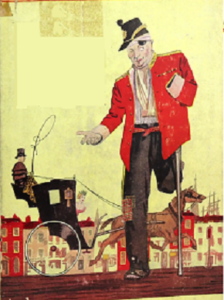 organizations think of people in situations of social vulnerability this holiday season. For those who are hungry or thirsty, nothing is more urgent than a plate of food and some water, but that’s not all.
organizations think of people in situations of social vulnerability this holiday season. For those who are hungry or thirsty, nothing is more urgent than a plate of food and some water, but that’s not all.
The human dignity that has been lost in some way by people in situations of vulnerability: abandonment, cruelty or some kind of injustice, must be recovered in steps that go further than some leftovers from our tables.
There are truly religious institutions and sentiments among those who take seriously this commitment to recovering the dignity of these people, but we must remember that many even receive salaries and benefits for this promotion and forget about the dignity of these people, as absurd as it may seem, there is a welfare policy and sentiment that does not see the recovery of the dignity of these people.
A book written by Bertold Brecht “Romance of the three twenties” (Brecht, 1976) tells of an organization that distributed beggars throughout Germany in order to raise funds and trade with those who should have social protection and don’t (photo). The author’s aim was ideological.
The author’s aim was ideological, to show that there is a trade in poverty, but this thought can be extended to a broader sense, not just to help, but to restore the dignity that all people have, to give them back their citizenship and life.
Christmas recalls the birth of Jesus in Bethlehem, where he couldn’t find a home, so the thought of the Savior’s birth is inalienable, thinking of the dignity of those who don’t have the warmth of a home. Remembering these people is a typical Christmas sentiment, but we need to go further than just a plate of food and a treat, we need to think of the dignity of these people and remind them that they are citizens and have human and civil rights.
We need to overcome the demagoguery of those who only think of helping those in vulnerable situations as “promotion”: alcoholism, drugs, homelessness or some kind of illness without the necessary public assistance.
Welfare also has this limit: it doesn’t see the human being beyond the vulnerable situation, it’s just a palliative that doesn’t restore sociability and dignity to vulnerable people.
May Christmas bring us hope for a society that does not abandon anyone, that goes beyond this festive season and sees the dignity of every person.
Brecht, B. Romance dos três vinténs (The Threepenny Novel). Brazil, Rio de Janeiro: Nova Fronteira, 1976.
Jesus baby, Mary and the mystery
If a divine being were born from a human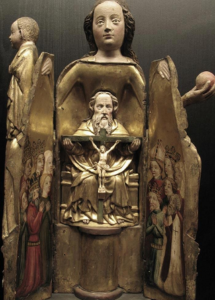 mother, just as a philosophical (and not theological) hypothesis, what should be the substrate of its nourishment and what relationship should it have with its mother?
mother, just as a philosophical (and not theological) hypothesis, what should be the substrate of its nourishment and what relationship should it have with its mother?
The chapter Matrix in Gremio (on his mother’s lap) by the non-Christian philosopher (religion for him is just a culture)
for him is just a culture) responded using a text by Lotario di Segni (1160-1216) who would become Pope Innocent III), that the interruption of Mary’s menstruation during the pregnancy of the divine child caused him to eat differently.
The text by Innocent III analyzed by Sloterdijk, De miseria humanitae conditionis, states: “there is no doubt that Jesus, even in grêmio (meaning in his mother’s womb) must have been provided with a different dietary plan” (Sloterdijk, 2016, p. 55). (Sloterdijk, 2016, p. 557), and also re-reads Question 31 of Thomas Aquinas’ Summa Theologica, where this noogenesis also implies the connection of two hearts, we have already extensively analyzed Byung-Chull Han’s book on Heidegger: “Heidegger’s heart: on the concept of affective tonality in Martin Heidegger”.
The ontological analysis that starts from a vision of the heart, in the sense of affective tonality given by Byung-Chull Han, gives a different and humanized perspective not only to the philosophical condition, but also to theological analysis.
Most of the biblical and historical analyses of the question of Mary do not start from this theological principle; the hermeneutic is only fixed on the problem of the text and its theological interpretations and translations, In other words, there is no affection, no love.
Without understanding this relationship of love and affection that exists between Mary and her divine baby, any analysis, even if it has deep Marian relations, will be superficial, without considering her condition as mother and her relationship from conception with the divine baby is flawed and cold.
Mary was a mother, and it is clear that all the mystery that she kept in her sacred womb cannot be thought of either in terms of her condition as a mother – she is a true mother – or in terms of her divine condition, her “guild” (womb) is enveloped in a divine and mysterious aura, which is revealed in her adult life.
Any reductionism of this condition, based solely on analytical speculation, steals the scene and the profound mystery of this divine/human condition in the relationship with the baby (in the photo, a sculpture in the Cluny museum in Paris, dating from the 14th century).
SLOTERDIJK, P. (2016) Esferas I: bolhas. Brail, São Paulo: Estação Liberdade.
Christmas and Civilization
Turbulent times, a night of culture, thought and spirituality.
Asia and Oceania have always been resistant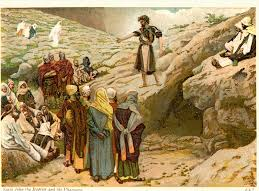 to the process of Western colonization, Africa and Latin America have suffered from the process of colonization and their development has always been built with difficulties.
to the process of Western colonization, Africa and Latin America have suffered from the process of colonization and their development has always been built with difficulties.
A biblical figure of Christmas is John the Baptist, the last and greatest prophet, because he announced the coming of Jesus, he had to “make smooth the paths of the Lord”.
He lived in the desert and ate insects and honey. He was an ascetic and was viewed with some suspicion by the religious of the time, but he was the announcement of what was to come, so he was an important part of the “advent”.
Where we can find today’s advent is certainly not in today’s “Roman empires”, their wars and injustices, nor is it in the false prophets and those who want an aura of divinity for themselves that they don’t have, filling their pockets and exploiting the people with easy words.
Peter Sloterdijk, a German philosopher who is not religious, calls the asceticism of today’s world an unspiritualized asceticism, a society of exercises, although it has a series of practices, now physics is also one of them, there is no content of ascension, and so it is not a true asceticism.
John the Baptist’s word was hard, his followers had a true but difficult asceticism, but they did prepare the proclamation of the good news, and there the roads were prepared, the hills lowered and the paths straightened.
So neither the wars nor the revolutions that are currently being proclaimed are paths to a new process of civilization; they are much more the denunciation of a time that must be overcome for a new civilization.

